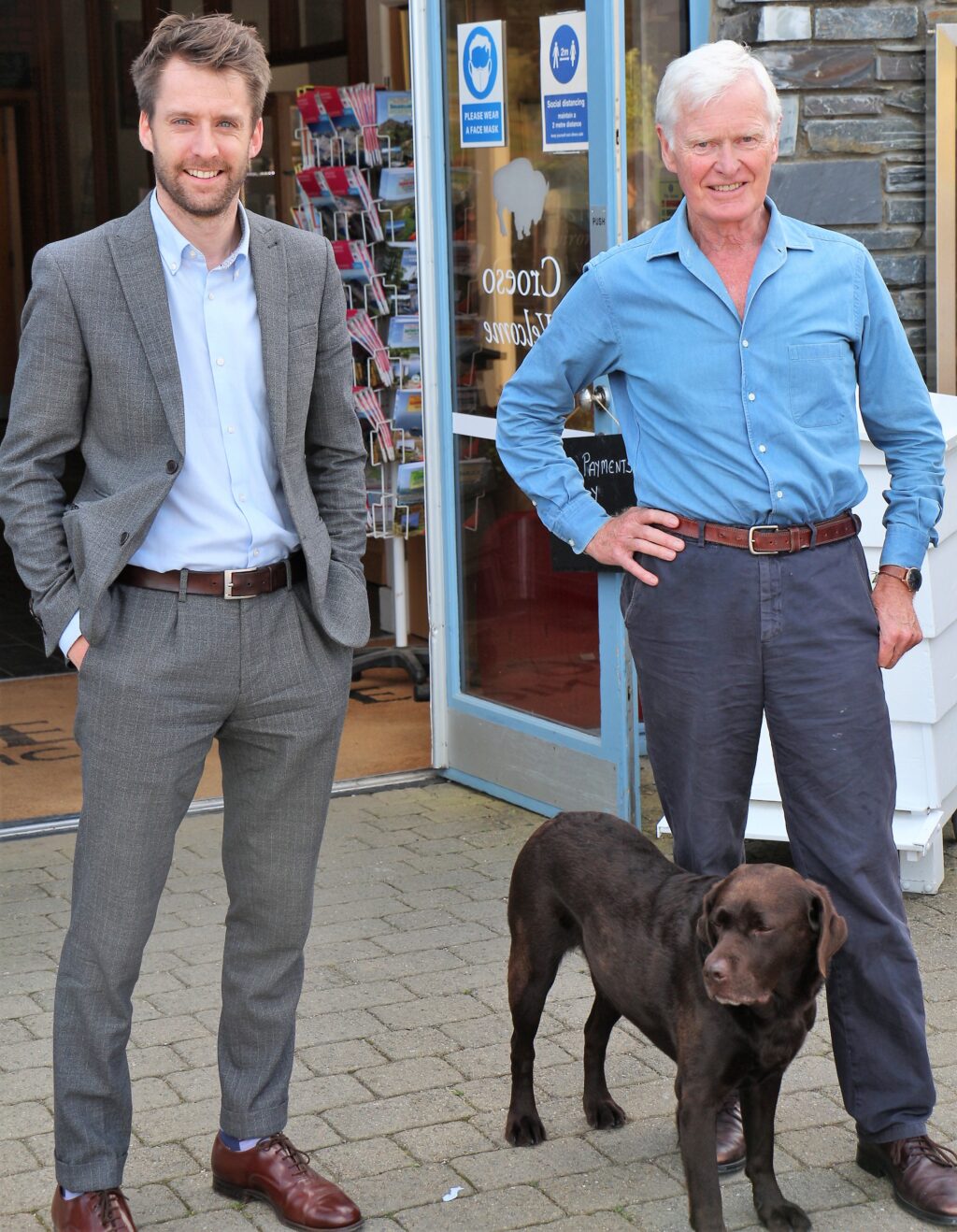Rhug Estate welcomes visit from local Senedd Member


Rhug Estate welcomed the Senedd Regional Member for North Wales, Sam Rowlands, recently on a visit organised by the CLA (Country Land & Business Association).
Lord Newborough, owner of Rhug Estate, showed Sam Rowlands MS around the diverse activities of the business. He also took the opportunity to discuss a number of issues with Mr Rowlands including tourism, agricultural policy, housing, sewerage capacity, labour shortages and the lack of grid capacity in the immediate area for the expansion of sustainable energy projects including car charging units at Rhug.
During the visit Lord Newborough explained how Covid-19 had affected the Estate, “We are a local business employing local people, we had over 100 staff before the pandemic struck last year. It was devastating to have to let staff, some of whom I had worked with for many years, go as we tried to manage the losses we faced. Every aspect of our business has been affected. The café is once again closed as we simply don’t have the staff to open, we’ve never seen a labour shortage quite like the one we are currently experiencing. As a supplier to many restaurants and hotels we have also seen a drastic decrease in our wholesale orders. It has made running some aspects of the business very difficult.”
This summer saw a welcome return of tourists to the region and Lord Newborough took the opportunity to explain to Mr Rowlands the pressures on farms like Rhug which had diversified. Lord Newborough said, “Without tourists there was little point in us opening our farm shop, café and takeaway as there was no passing trade.”
Sam Rowlands MS said, “Thank you to the CLA for organising the visit to Rhug and to Lord Newborough for spending time with me to explain the current situation on the farm and with the business. I was impressed by everything that they have achieved at Rhug and by their innovative and forward-thinking approach. I found it helpful to hear Rhug’s perspective on some of the challenges and opportunities facing the rural economy of North Wales and I look forward to taking these back to the Welsh Parliament.”
Lord Newborough also aired his concern for smaller farmers who have been forced to diversify to try and make a viable enterprise for themselves and their family. Many of them invested heavily into creating holiday accommodation by the conversion of farm buildings into lettable units and acquiring houses to let out as holiday homes. Many of them have borrowed money to do this and it now forms a major part of their income. They all depend on a vibrant tourist industry and the two aspects of these businesses, farming and holiday lets, depend on one another.
Emma Story, Rhug’s Estate Manager said, “A policy that manages the interrelationships between different types of housing and the surrounding communities well, and acknowledges the pressures legislation brings, will be difficult to draft. Government, however, must focus on this issue urgently and the rural sector needs to raise its voice to highlight important factors. We were glad to be able to do this with Sam Rowlands. The lack of grid capacity in the area was also highlighted, a real barrier to carbon friendly solutions and something which must be addressed at a national level.”




